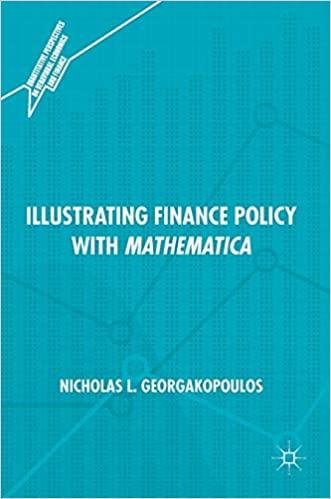Question
1. 1. You invest $1,000 in a certificate of deposit that matures after 10 years and pays 5 percent interest, which is compounded annually until
1. 1. You invest $1,000 in a certificate of deposit that matures after 10 years and pays 5 percent interest, which is compounded annually until the certificate matures.
a. How much interest will you earn if the interest is left to accumulate?
b. How much interest will you earn if the interest is withdrawn each year?
c. Why are the answers to a and b different?
2.A self-employed person deposits $3,000 annually in a retirement account (called a Keogh account) that earns 8 percent.
a. How much will be in the account when the individual retires at the age of 65 if the savings program starts when the person is age 40?
b. How much additional money will be in the account if the saver defers retirement until age 70 and continues the contributions?
c. How much additional money will be in the account if the saver discontinues the contributions at age 65 but does not retire until age 70?
3. 3. A 45-year-old woman decides to put funds into a retirement plan. She can save $2,000 a year and earn 9 percent on this savings. How much will she have accumulated if she retires at age 65? At retirement how much can she withdraw each year for 20 years from the accumulated savings if the savings continue to earn 9 percent?
5. If a parent wants to have $100,000 to send a newborn child to college, how much must be invested annually for 18 years if the funds earn 9 percent? (Any current student who subsequently becomes a parent and wants to send a child to college should make this calculation early in the child
Step by Step Solution
There are 3 Steps involved in it
Step: 1

Get Instant Access to Expert-Tailored Solutions
See step-by-step solutions with expert insights and AI powered tools for academic success
Step: 2

Step: 3

Ace Your Homework with AI
Get the answers you need in no time with our AI-driven, step-by-step assistance
Get Started


